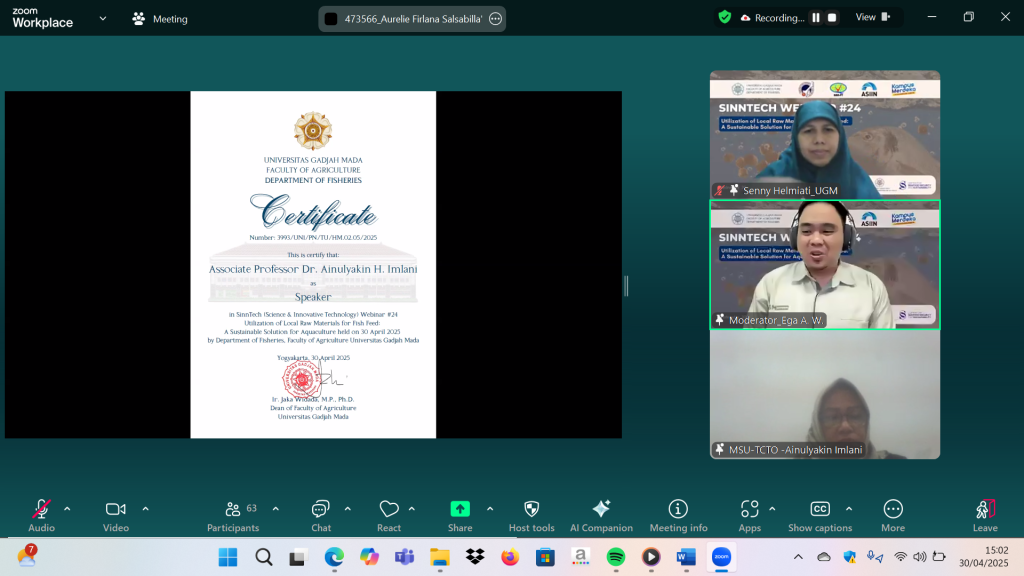Yogyakarta, April 30, 2025 – A webinar entitled “Utilization of Local Raw Materials for Fish Feed: A Sustainable Solution for Aquaculture” was successfully held as part of the SinnTech 24 event series on April 30, 2025. The event attracted dozens of participants from various fisheries and marine institutions across Indonesia. It served as a platform for scientific discussion on the use of local raw materials to support sustainability in the aquaculture feed industry. The webinar was moderated by Galuh Wulanuari, a first-semester student of the UGM Fisheries Science Master’s Program (2024 intake).

The webinar featured two speakers who shared insights into alternative feed materials derived from local resources. The first speaker, Associate Professor Dr. Ainulyakin H. Imlani from Mindanao State University, discussed the potential of alternative fish feed ingredients. He noted that dependency on conventional feed ingredients such as fishmeal and soybean meal is no longer sustainable due to their limited availability caused by overfishing and land-use change. Dr. Ainulyakin introduced various high-nutrition, cost-effective local feed ingredients such as insects, plants, algae, and agro-industrial byproducts as more environmentally friendly alternatives.
The second speaker, Dr. Senny Helmiati, S.Pi., M.Sc., from the Department of Fisheries, Faculty of Agriculture, UGM, presented her research on the potential of insects and plants as fish feed ingredients. Among her highlights was the Black Soldier Fly (BSF) larvae, known for its high protein content and ability to be cultivated using waste substrates like coffee grounds and bread waste. Her research demonstrated that managing local organic waste can reduce environmental impacts while producing high-quality fish feed. The webinar aligned with several SDGs, including SDG 2 (Zero Hunger), SDG 14 (Life Below Water), and SDG 17 (Partnerships for the Goals), supporting food security and marine ecosystem conservation through innovation based on renewable resources.
Author: Fathurrahman Kafi
Editors: Nahla Alfiatunnisa, S.Pi.


